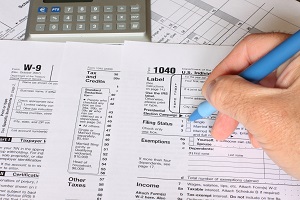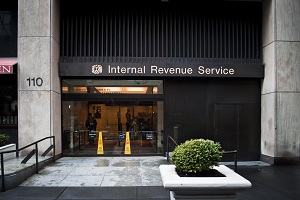Taxes During Bankruptcy
Do I Have To Keep Paying Taxes During My Bankruptcy?
Not paying your taxes is not legal, we cannot say a way to avoid your tax liability is hidden under bankruptcy protection. If you’re employed and your employer is taking out those payroll taxes, then it’s already happening anyway. Keep paying your taxes while you’re in bankruptcy, it is a duty.
Can Bankruptcy Help Me Discharge Tax Debt?
Most people come to the office thinking that: well, you know, it’s tax debt so I know that’s not dischargeable, and that’s not entirely true, there are circumstances where you can’t erase that tax debt but there are plenty of circumstances where it can get discharged. We had a case a while back where we had some clients who were able to discharge about $74,000 of that tax debt, so yes, in some circumstances you can discharge your tax debt. Tax debt takes on very different characteristics, if you have recent tax debt, then that gets considered a priority tax debt in bankruptcy.
The bankruptcy will then consider the older tax debt that is rather unsecured and has not been filed within the last 3 tax years, has been assessed by the IRS, and if it has not become a secured debt yet by garnishment, seizure of your bank account balance or your personal property or something like that, then it becomes a secured tax debt.Tax debt can be secured, unsecured, or priority, when it’s unsecured it can probably be discharged, it has to be filed more, it can’t be any kind of tax debt for fraud like penalty fees for fraud or anything like that, it has to be filed more than 3 years ago.
It has to have been assessed by the IRS more than 8 months ago, that’s called the 240-day rule, and it has to be income tax, this doesn’t apply to if you’re a business owner, payroll tax, or property tax, we’re only talking about your 1040 tax.
Can Businesses With Tax Debt File Bankruptcy?
Anyone or any entity can file bankruptcy, the question you want to ask is not whether or not you can file but can you discharge certain kinds of debt?A business with tax debt can file, but the kind of tax debt will probably be payroll tax, other kinds of tax for the business itself, and possibly property tax.Those taxes cannot be discharged in bankruptcy, they will be treated as a priority debt, and they must get paid one way or another, they can’t be discharged.
How Does Bankruptcy Affect The Way I File My Taxes?
Chapter 7, which is sometimes called a complete bankruptcy liquidation bankruptcy, it’s a three-month process, it discharges whatever can be discharged and leaves the rest.If you have a tax debt in Chapter 7, then you will usually make some kind of repayment arrangement with the IRS and go on your way, it’s handled for the most part outside of bankruptcy.In Chapter 7 if you have a refund that you’re expecting then you may run the risk of having that be turned over to the trustee for just that one year.
We might add that sometimes, if you have things that you need to pay for with that refund, for example if you were going to use it for an essential car repair or medical treatment or something really important, but if you were just going to use it for your annual vacation to Disneyland, they probably won’t let you keep it.You’ll want to work closely with your bankruptcy attorney to see what can be protected and what can’t.
Chapter 13 is very different, in Chapter 13 you have to commit part of your refund, which is over $2,000 of anything above that, you have to commit for the 3 to 5 years that you are in your Chapter 13 plan.Every year you have to file your taxes and send a copy of your tax return to your attorney who will send it to the trustee, and you have to send in a portion of your refund to do that.Our advice to our clients is to adjust your withholding so you’re not getting a great bid refund at the end of the year, and then you don’t have to worry about it.
What Determines Whether My Tax Debt Can Be Erased?
It has to be income tax, which is the 1040 tax form, it has to be a tax debt that’s not based on any kind of fraud, it has to have been filed more than 3 years ago, and it has to have been assessed by the IRS at least 8 months ago or 240 days ago.For example, if you filed your 2012 taxes on time, they were assessed, and you have this tax that has been there for the last 10 years, as long as the IRS has not converted that tax debt into a lien against your bank account, your personal property, then that debt is dischargeable.Generally speaking, that’s the rule, so if you have older tax debt it’s worth talking to a bankruptcy attorney who knows about IRS debt.
Should I File For Bankruptcy Before Or After Filing My Taxes?
One of the prerequisites to being able to file bankruptcy is that you have to have filed all tax returns that you’re required to file.If you don’t have enough income so you are not required to file, that’s okay, you don’t have to file something just to declare zero income, but if you were required to file, you have to have filed all those years of taxes for any of those missing years before filing bankruptcy.
Can I Still File For Bankruptcy Without Having Filed My Taxes?
One of the most terrible but healing stages of bankruptcy is when you are looking closely at what you owe, but that is not the end of the story, because your attorney and you will work together on how you will be the best way to deal with that debt, if we have this big ugly number that is sitting there, you owe taxes, you owe anything else, your attorney will be able to say: but these taxes can be dealt with in Chapter 13, or you can work out a really low payment plan with the IRS and they will be fine with that.One of the positive aspects of Chapter 13 bankruptcy is when you are paying off that IRS debt for years, the IRS does not charge interest or penalties while you are in that Chapter 13 repayment plan, but if you were to handle that debt outside of bankruptcy, you would be accruing interest on penalties throughout that financial journey.
What Happens To Someone’s Tax Debt When They Are In Prison?
You can file bankruptcy unless you are receiving some type of dividend or interest payment while you are in prison, you are probably not earning enough money to be required to file your taxes while you are incarcerated.You would need to take a close look at how much income you were making while you’re in prison, file the taxes if you’re required to file them, and then file bankruptcy if you need to.The important thing is to file your taxes on time, don’t wait and do 5 years at once.
Can I Use My Tax Refund To Pay For My Bankruptcy Case?
That is a great way to use your refund, you are only allowed to keep a relatively small amount in your bank account when you file for bankruptcy.Sometimes, we have to advise our clients that before filing bankruptcy they have to spend some of the money that is in their checking or savings account, but you can’t spend it on superficial things, you can’t buy a diamond tiara and then file bankruptcy.Paying your bankruptcy attorney is a great way to spend that refund, it is cleaning house on your financial situation, and you may not have the option of paying into your Chapter 13 debt restructuring.If you have this lump sum sitting there, it’s a very good idea to pay that down, use it to file that Chapter 13, use it towards your plan payment and get it as low as possible.
If I Receive A Tax Refund During My Bankruptcy, Do I Get To Keep The Money?
It depends, if you are in Chapter 13 you will probably have to turn over the refund, especially if it is over $2000, in Chapter 7 probably not because it is not a hard rule always, but you probably will.However, there is some case law in Texas that says that if you can show that you need that refund to stay afloat, then if you can show that you need it by stating what you are going to spend it on to get quotes, you will most likely be able to keep that.
That’s another good reason not to do this alone, get a lawyer who can advocate for you, and lay it all out.We have a client whose insurance does not cover their child’s needs, they have a child that requires certain therapies and they count on that reimbursement every year to pay for those therapies, so we had to expose to the administrator how much the therapy costs, for that you need a letter from the pediatrician saying that it is necessary and this is why they need that money, and the court told them that yes they could keep it.
If we can show the court or the trustee that it’s for necessary expenses, then you can usually keep it, again, if you’re going to go to Disneyland probably not.
What To Do If Someone Stole My SSN, I Am In Debt & Collectors Won’t Stop Calling
Bankruptcy is definitely an option, there are other things you can do if you’ve been the victim of identity theft, you want to make a police report, you want to report that to the IRS because they have ways to protect you with that.You can then use those arguments to talk to the creditors themselves, but they may not stop calling you, so if you decide to file bankruptcy, even if you claim it is not your debt, and it shows up on your credit report, we will list it in the bankruptcy, and if it’s dischargeable people doing identity theft will use credit cards and things like that.
Then we will get rid of that debt even if you believe it is not yours, even if you firmly believe it is not yours, make that report to the police, notify the IRS, tell everyone who needs to be informed.If you choose bankruptcy, you can usually discard or discharge that debt that was incurred in your name.
Could An Error Filing Taxes Affect My Bankruptcy Case?
It depends on what the error is, you can always go back and amend your tax return and you should do that, then provide your attorney and the trustee with the amendments that you’ve done.The way that we could imagine it affecting your bankruptcy case is especially in Chapter 13, the IRS is going to claim payment in your case if you owe them money, so we would want to stay on top of that change in status.If you owe more or you owe less, then we would need to make some adjustments in your Chapter 13 repayment plan, make sure that those are reflected so that at the end of the bankruptcy no more issues are hanging out there.
We want everything handled within the time frame of bankruptcy but, generally, if the error is a spelling error or a bank account error, that’s not going to make much of a change if it changes the amount you owe, or how much of your refund, then definitely we would want to talk about that.
After I File For Bankruptcy, Do I Need To Do Anything Different When Filing My Taxes?
You file your taxes like you always would, nothing changes if you’ve filed bankruptcy, you’re just gonna keep on reporting what you need to report and filing those taxes on time.
Bankruptcy courts don’t like it if you ask for an extension to file your taxes, that’s something you want to stay on top of. One thing that comes up that does not affect your bankruptcy but it’s an error on the part of your creditors, if you have not filed bankruptcy, let’s say that you settled the debt for less than what you owe, you can get taxed on that forgiven debt, remember this is outside of bankruptcy, you haven’t filed bankruptcy.
If you have forgiven debt you might get a 1099 form from that creditor with essentially imputed income, then you’ll get taxed on that as income that you didn’t end up having to pay if you get one of those after you filed bankruptcy.
There is another form that you need to file with your taxes that shows the IRS that that is not imputed income, it is the discharge of debt in bankruptcy, so you will want to contact Austin Bankruptcy Lawyers who will be able to direct you to the form that you need, and it is more work because if the IRS receives the form that you received, they receive it as reported income.
They are going to mark your return as not having reported all of your income, so you need to make sure that if you receive one of those forms in error by the creditor, make sure that you send the IRS the other form that tells them that this is not income, this was discharged in bankruptcy and there should be no further problems after that.
As for actually filing your tax returns, whether you’re in bankruptcy or have just filed, or have it discharged nothing changes, you just go ahead and to your tax return preparer as usual and get that thing filed.
& Let’s Discuss How We Can Best Help Eliminate Your Specific Financial Struggles!






